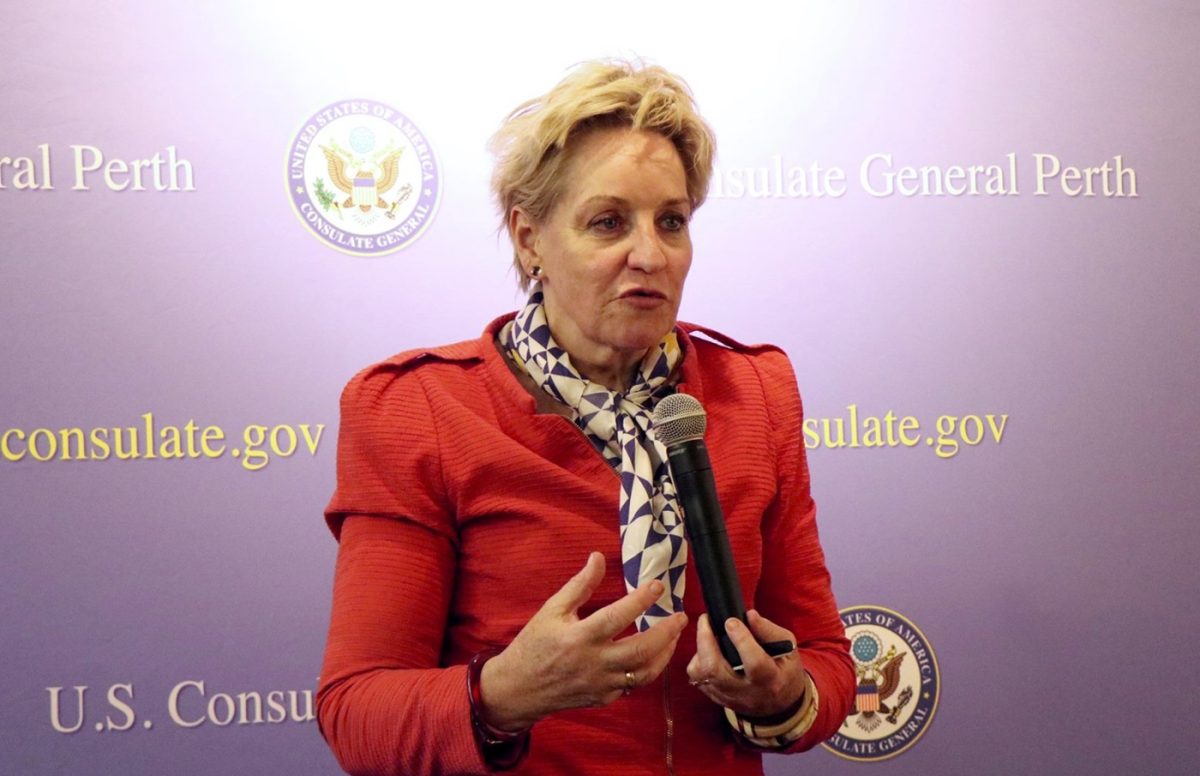
The committee leading the telecommunications review comprises chair Alannah MacTiernan, Fiona Nash, Kristy Sparrow, Dr Jessa Rogers and Ian Kelly. Photo: David F.
The Federal Government is calling on regional, rural and remote Australians to give feedback on their telecommunications issues in its first-ever online survey.
Until 31 July, people in regional, rural and remote parts of the country can share their experiences with an independent committee that is leading the review.
So far, it has received submissions and held face-to-face consultations on telecommunication matters including delivery during emergencies, how emergency technologies could improve connectivity, and ways telecommunications can support regional development.
Committee chair, former WA Regional Development Minister Alannah MacTiernan, said the online survey was an easy way for everyone to take part in the review.
“Access to reliable telecommunication is increasingly important for regional Australians – it is essential for keeping connected with family and friends as well as for business and access to health and education services,” Ms MacTiernan said.
“While we will be travelling to dozens of sample communities across the country, we want to provide an opportunity for every regional Australian to have their say.”
The review takes place every three years and will continue offering people the chance to contribute by attending face-to-face consultations in various towns or providing a submission online.
Their input will help the committee submit findings and recommendations to the Federal Government to address the needs of regional, rural and remote Australia. Past reviews have seen major initiatives delivered, such as the Mobile Black Spot Program and National Audit of Mobile Coverage.

“We need to hear your stories about what is working and what is not,” committee chair Alannah MacTiernan said. Photo: Facebook/Alannah MacTiernan.
Last month, the Auditor-General delivered a report on the National Broadband Network’s (NBN) transition from construction to operation.
Run by government-owned entity NBN Co, the infrastructure project seeks to provide fast, reliable and affordable connectivity to all consumers of the Australian telecommunications system.
Despite initial cost estimates being earmarked at under $30 billion, since 2011 the Commonwealth has put $51.4 billion into its development.
In December 2020, then Communications Minister Paul Fletcher declared the project built and fully operational.
The Auditor-General’s recent review examined NBN Co’s governance arrangements and processes between July 2020 and December 2023.
While the government entity’s management over this transition period was found to be “largely effective”, the Auditor-General said that none of the mandatory requirements of NBN Co’s plans and strategies were met.
According to the Auditor-General’s report, NBN Co’s main issue was the poor communication with and reporting to its shareholders – the Ministers for Finance and Communications.
“Requests from shareholder ministers that NBN Co comply with mandatory requirements made between September 2020 and September 2023 were not addressed until early 2024,” the report says.
“Until improvements were implemented in February 2023, transition risk information was not complete or accurate and did not consistently reflect the board’s risk appetite.”
The Auditor-General also claims that NBN Co has no timeline for completion of the transition.
The report’s three recommendations to NBN were aimed at ensuring specific requests from shareholder ministers were adequately responded to, the Australian Government’s expectations were reflected in strategy and performance monitoring and mandatory requirements were met.
All of them were accepted by the government entity.



